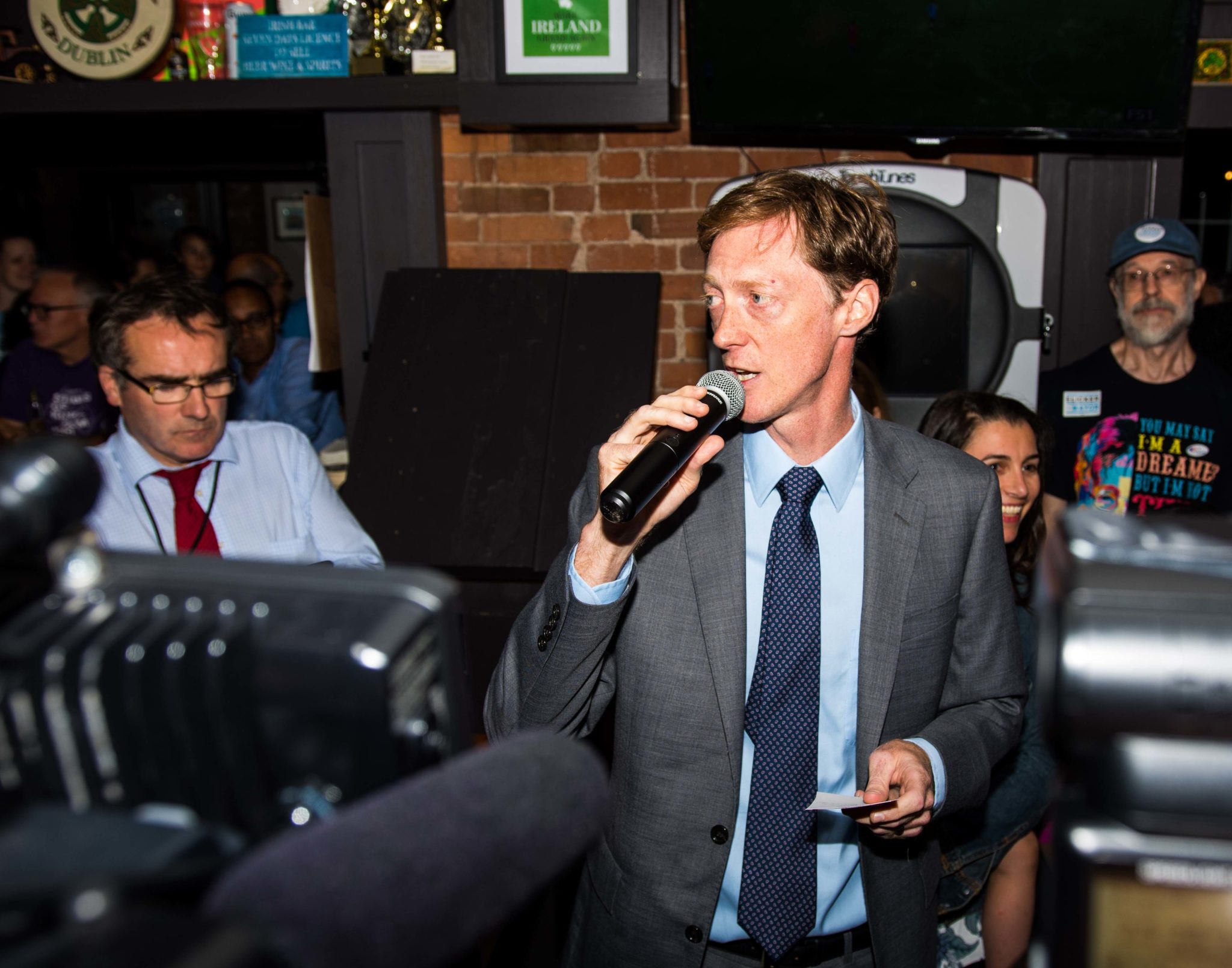
Lukas Flippo
Having the quintessential American breakfast of pancakes, home fries and coffee with one’s elected officials isn’t a common occurrence, but newly inaugurated Mayor Justin Elicker invited constituents to do just that.
On Tuesday morning, approximately 11 New Haven residents joined Elicker — who issued an invitation to the public — for breakfast at the Triple AAA Pizza Restaurant on Whalley Avenue. Residents came to this public roundtable discussion to voice various concerns regarding the city, offer their suggestions and talk about Elicker’s plans for his first 100 days. Diners and employees greeted Elicker positively, smiling and even filming his arrival. The breakfast is the latest in a series of events in which Elicker has tried to make himself available to constituents outside of City Hall.
“What [Elicker’s] been doing right now in making it accessible is great,” Ray Jackson, a Newhallville community activist told the News in an interview. “If he’s not doing it correct, people need to tell him, and they will tell him [if opportunities continue to exist.]”
Attendees were interested in a variety of local issues. Several brought up concerns over education in New Haven, which has weathered crisis in recent years, with budget issues and turnover in leadership.
Edward Joyner, a New Haven Board of Education member and member of Elicker’s transition team, attended the breakfast and offered the idea of mentorship programs for middle school students.
Joyner suggested that mentorship would “create a consortium of support for the city as a whole,” referencing the city’s ability to draw on the resources of the city’s residents and institutions. Another constituent mentioned the idea of expanding after-school programs for New Haven students at the Yale School of Medicine.
The arts were also discussed during this meeting. JoAnne Moran, a resident of Fair Haven, runs a program that combines the arts with environmental education. She told the News in an interview that she was looking forward to Elicker’s plans for “Arts, Culture, and Library” as outlined in his transition team’s report.
“I’m impressed by the booklet they put out, the first 100 days’ plan,” she said. Moran envisions New Haven implementing arts and cultural programs similar to those of Boston and Providence.
Elicker’s transition report, released on Jan. 7, also addressed nine other areas: Budget and Finance; City Operations and Public Works; Community Leadership, Responsive Government, and Transparency; Economic Development, Workforce, and Transportation; Education; Environment and Climate Change; Health and Housing; Human Services and Immigration; and Public Safety. The team explained that these were determined through a variety of meetings with local residents and city staff, emails and survey responses.
Elicker himself has repeatedly acknowledged the hurdles that the Elm City faces, particularly financially. On Tuesday, he stressed the city’s past and current debt crisis. He repeatedly pointed out that the city was borrowing unsustainably, resulting in a deficit possibly reaching up to $50 million. He admitted that such a financial crisis stands in the way of his goal to increase funding for services such as public libraries.
Questions about funding extended to more basic services, too. One Westville resident pressed the mayor on an issue that has existed on his street for almost 16 years now: dying trees and crumbling asphalt. He lamented that “we do our cleanups” but that residents do not have the ability to repair sidewalks.
In response, Elicker acknowledged a problem in the city’s services request handling. He promised to further streamline constituent requests through improvements in the technology used to process such requests. He also pledged to clarify to whom constituents can direct concerns and requests — a commitment consistent with a recurring campaign promise of improving City Hall accessibility.
“I hear you,’’ Elicker said. “One of the things that is really important is that there is a process to see who decides to fix a sidewalk is clear. IT is tracking requests better.”
Elicker’s commitment to accessibility has included other open events. His recent inauguration ceremony was held as accessible to all, in contrast with the balls held by his predecessors. On Jan.16, he invited residents to “Grab a beer with the Mayor.”
Elicker began his two-year mayoral term on Jan. 1, 2020.
Talat Aman | talat.aman@yale.edu







